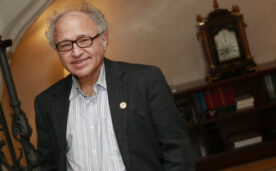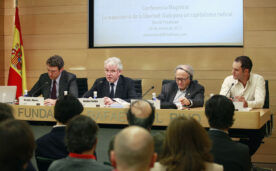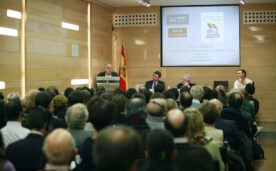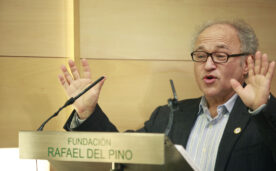On 24 January 2013, the Rafael del Pino Foundation organised the Keynote Lecture by David D. Friedman, entitled The Machinery of Freedom: A Guide to Radical Capitalism on the occasion of the presentation in Spanish of his book of the same title.
Professor Friedman explained his view of the crisis. David Friedman argued that "it's not really about markets. It is about a situation in which the rational action of individuals produces an irrational outcome for the group. This happens in markets, political systems, battlefields, and many other places and explains why both markets and the political alternatives to them sometimes produce the wrong results".
David Friedman, son of the laureate economist Milton Friedman, is a leading proponent of anarcho-capitalism, a theory that the state is an unnecessary evil and that all services, including the law itself, can be provided through voluntary cooperation in the private economy.
D. from the University of Chicago, Professor Friedman is best known for his contributions on economics and law. David Friedman is a member of the faculty of the Santa Clara University School of Law. Prior to joining Santa Clara University, Professor Friedman taught at Cornell, Tulane, UCLA, the University of Pennsylvania, Columbia University, and the University of Chicago.
David D. Friedman has published his work in numerous academic journals and volumes, and is the author of eleven books: Future Imperfect: Technology and Freedom in an Uncertain World, Law's Order: An Economic Account, Hidden Order: The Economics of Everyday Life, Price Theory: An Intermediate Text, and The Machinery of Freedom: Guide to a Radical Capitalism. as well as the novels Harald y Salamander.
The Machinery of Freedom: A Guide to Radical CapitalismThe book outlines the means by which a society can function without a state and explores the possibilities of law in a stateless society. It is one of the most influential books in the anarcho-capitalist literature. Professor Friedman outlines a genuinely free and useful capitalist market system that works for the benefit of the majority of the population.







